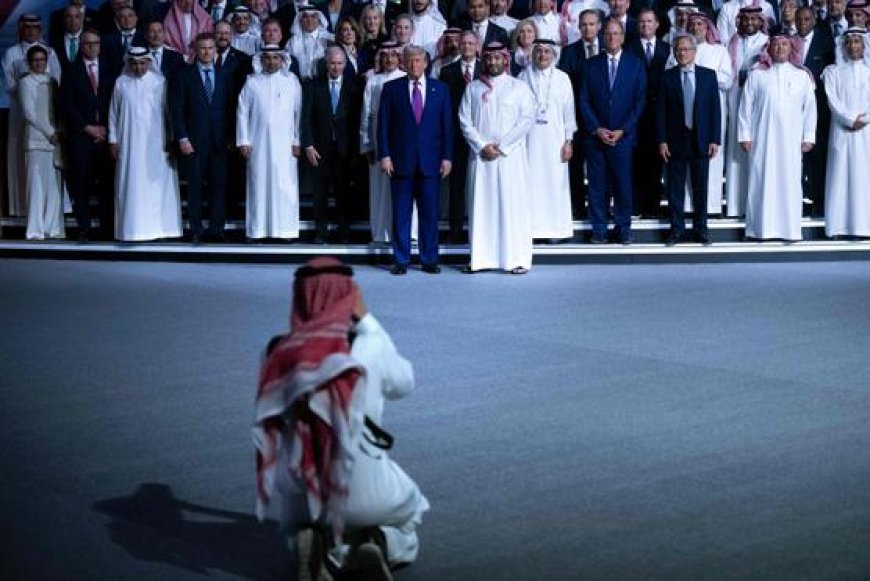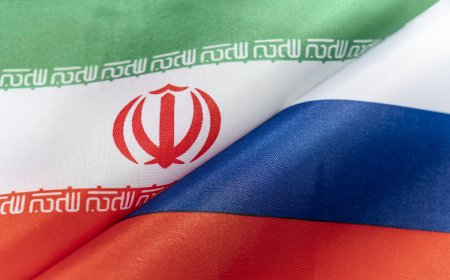Trump’s Billion-Dollar Desert Gamble Can’t Buy Back His Broken Popularity
In fact, West Asia is only valuable to the United States when it sends money to America. Only then is the region allowed a place in the global value chain and the circles approved by the U.S.—even if it continues oil and gas exports to China, it should remain on America's side in the rivalry among great powers.

Donald Trump returned to Washington after an official trip to Saudi Arabia, Qatar, and the United Arab Emirates, with the White House hailing the visit as a major success. Although Trump's key security goal in West Asia is to expand the Abraham Accords (a legacy of his first administration) and his main strategic objective is to align the Persian Gulf states against China, this trip revealed a different priority: the economy lies at the heart of Trump’s foreign policy in West Asia.
In fact, West Asia is only valuable to the United States when it sends money to America. Only then is the region allowed a place in the global value chain and the circles approved by the U.S.—even if it continues oil and gas exports to China, it should remain on America's side in the rivalry among great powers.
The Persian Gulf Cooperation Council (GCC) countries rank fifth globally in foreign exchange reserves with $804 billion (after China, the EU, Japan, and Switzerland). Banks operating in the six GCC nations have attracted around $2 trillion in bank deposits, over 80% of which has been loaned to private sector companies or invested in their projects. The agreement of Saudi Arabia, the UAE, and Qatar to invest hundreds of billions of dollars in the U.S. (e.g., $600 billion from Saudi Arabia alone) is a clear example of how central the economy is to America’s Middle East policy.
While the U.S. presidential communications team insists on the high productivity of this trip, Trump faces mounting domestic challenges. As he expands international activities and imposes budgetary barriers along the U.S. border, internal turmoil and crises are being sidelined—despite their undeniable importance.
Since Trump took office, U.S. foreign policy has undergone dramatic and controversial shifts. The President has launched a global trade war. Together with his ally Elon Musk, he has significantly impacted the infrastructure of American diplomacy. Ukraine seems largely abandoned. USAID has been shut down, and both the budget and personnel of the State Department have been slashed. Trump has severed ties with international organizations like the World Health Organization (WHO). Tracking all of this is difficult—tracking the destruction occurring within U.S. institutions is even harder. Trump has sketched a foreign policy that can be simply described as aggressive.
Domestically, Trump’s so-called “Big Beautiful Bill” remains stalled in the House of Representatives. Meanwhile, a recent poll paints a troubling picture of his popularity: he only performs well on border security. According to this poll, 40% are satisfied with his overall performance, while 56% are dissatisfied—a 16-point deficit.
Across various policy areas, Trump scores poorly:
Inflation and prices: –32%
Jobs and the economy: –17%
Trade: –21%
Government funding and social programs: –20%
Healthcare: –17%
Foreign policy: –16%
Education and federal workforce management: also negative
Immigration: –2% and –6%
Only in border security does he have a +10% approval rating. This poll was conducted between May 1 and 6 with a sample size of 1,000 people. When asked about their voting preference if an election were held today, 47% favored Democrats and 41% Republicans—a trend suggesting the possible shift in the composition of Congress.
In conclusion, while Trump struggles with deep-rooted domestic issues across various domains, his efforts to secure billions from West Asian Arab nations during this trip will not restore his declining popularity. These internal problems cannot be solved with dollars alone. Trump's administration continuously pushes government employees into blind obedience, disregarding experience and expertise in favor of loyalty. The same profit-driven mindset that defines his foreign policy is mirrored in his domestic policy, contributing to his unpopularity.
Therefore, his international economic ventures cannot compensate for the domestic crises caused by his ideology and leadership style.
Translated by Ashraf Hemmati from the original Persian article written by Hakimeh Zaeem Bashi













































